Introduction & Definition
Mental health is priceless because it has significant effects on every aspect of our lives. It impacts how we think, feel, and act, influencing our ability to manage stress, relate to others, and make important decisions. Mental health is super important in every phase of life, from childhood to old age.

Relevance and Importance
Mental health is important as it impacts every aspect of our lives. Good mental health enhances our quality of life, allowing us to be productive, maintain healthy relationships, and cope with adversity. Poor mental health can lead to serious issues such as depression, anxiety, and other mental health disorders, which can affect physical health and daily functioning.
Types and Categories
1) Common Disorders
2) Anxiety Disorders
3) Anxiety disorders happen due to excessive fear or worry. Here are some common types which include Chronic Worry Disorder, Sudden Fear Episodes, and Social Phobia.
Mood Disorders
Mood disorders primarily involve disturbances in a person’s mood. Major depressive disorder (MDD) and bipolar disorder are the one of the most frequent. MDD disorder persons frequently feel sad, have less interest in activities, and have continuous emotional and physical issues. Bipolar Disorder persons are involved in very high mood changes, sometimes they are very energetic or very low and depressed. It affects their power to think clearly and make decisions.
Psychotic Disorders
Psychotic disorders are such as schizophrenia, which includes distorted thinking and awareness. Symptoms include delusions and hallucinations. In this case, the person suffering from this happens to see things that are not real, and this could have a big impact on the daily life of a person.
Eating Disorders
Wrong eating, which includes anorexia nervosa, bulimia nervosa, and binge-eating disorder, involves extreme behaviors surrounding food and body image. Anorexia nervosa happens to those who have a lot of fear of gaining weight and they land up eating very less, bulimia nervosa is defined as overeating and then removing the food by vomiting or doing an excess workout. Binge-eating disorder involves eating a large portion of meals in a short period because of distress or guilty feelings.
Personality Disorders
Personality disorders involve different patterns of behavior, cognition, and inner experience that reflect significantly from cultural expectations. Some examples include borderline personality disorder and antisocial personality disorder. These people are mostly carried away with intense emotions, unstable relationships, fear of getting dumped or left out, and other social insecurity.
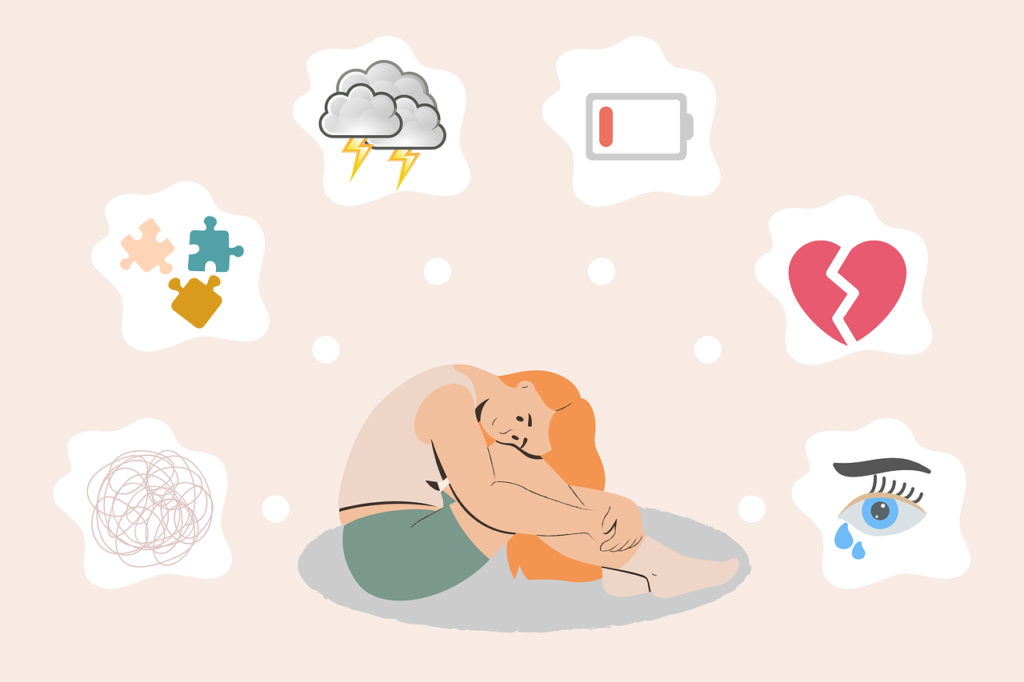
Less Common Mental Health Disorders
Dissociative Disorders
Dissociative disorders involve disruptions or discontinuity in consciousness, identity, memory, or perception. Dissociative identity disorder (DID) is a well-known example, where a person has two or more distinct identities or personality states, each with its patterns of thinking and behavior.
Somatic Symptom Disorders
Somatic symptom disorders are characterized by an excessive focus on physical symptoms, such as pain or fatigue, which cause significant distress or impairment. These symptoms cause deep distress or impair daily routine, even though they may not have a medical explanation from any expert.
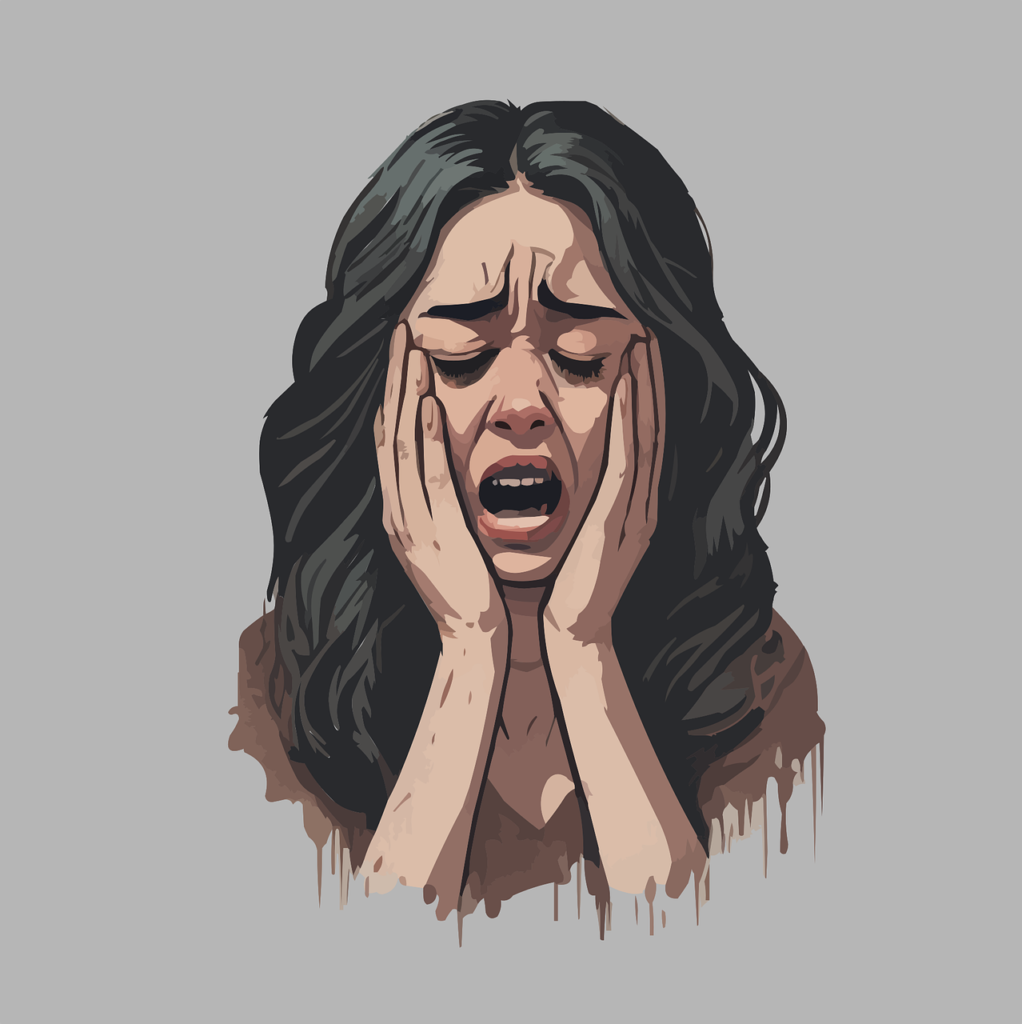
Symptoms and Signs
1) General Symptoms –
2) Emotional Symptoms
Common Emotional & General Symptoms of Mental Health Disorders
These disorders can significantly affect how we feel and interact with the world around us. It’s important to understand these symptoms at the early stage of treatment. Here’s a breakdown of some common emotional and general symptoms:
Persistent Sadness: This is more than just feeling blue from time to time. Continuous sadness, often being in depression, involves an ongoing sense of unhappiness or emptiness. It’s not simply a reaction to specific events but a deep-seated emotion that lingers over time.
Mood Swings: Extreme mood swings can be indicative of several mental issues, including bipolar disorder. These swings can range from emotional highs, such as euphoria or irritability, to deep lows marked by sadness or hopelessness. Such fluctuations can affect daily functioning and relationships.
Recognizing these symptoms is a crucial step toward seeking help and improving mental health. If you or someone you know is experiencing these symptoms, it’s important to consult a professional for guidance and support.
Physical Symptoms
Physical symptoms can include chronic fatigue, significant changes in appetite or weight, and unexplained aches and pains..
Chronic Fatigue: Ongoing feelings of extreme tiredness or lack of energy, known as chronic fatigue, are often linked to mental health conditions like depression or anxiety. This isn’t just about feeling sleepy; it’s a profound and ongoing exhaustion that doesn’t improve with rest and can significantly impact daily activities and overall quality of life.
Significant Changes in Appetite or Weight: Mental health issues can lead to noticeable changes in appetite and weight. For Example, depression might cause a person to lose their appetite and experience weight loss, while anxiety or stress might lead to overeating and weight gain. These changes are often not directly related to diet or physical activity but are driven by underlying emotional and psychological factors.
Unexplained Aches and Pains: Many people with mental health disorders experience physical discomforts, such as unexplained aches and pains. These can include headaches, muscle tension, or gastrointestinal issues that have no clear physical cause. The connection between mental and physical health is strong, and stress, anxiety, and depression can manifest through various physical symptoms.
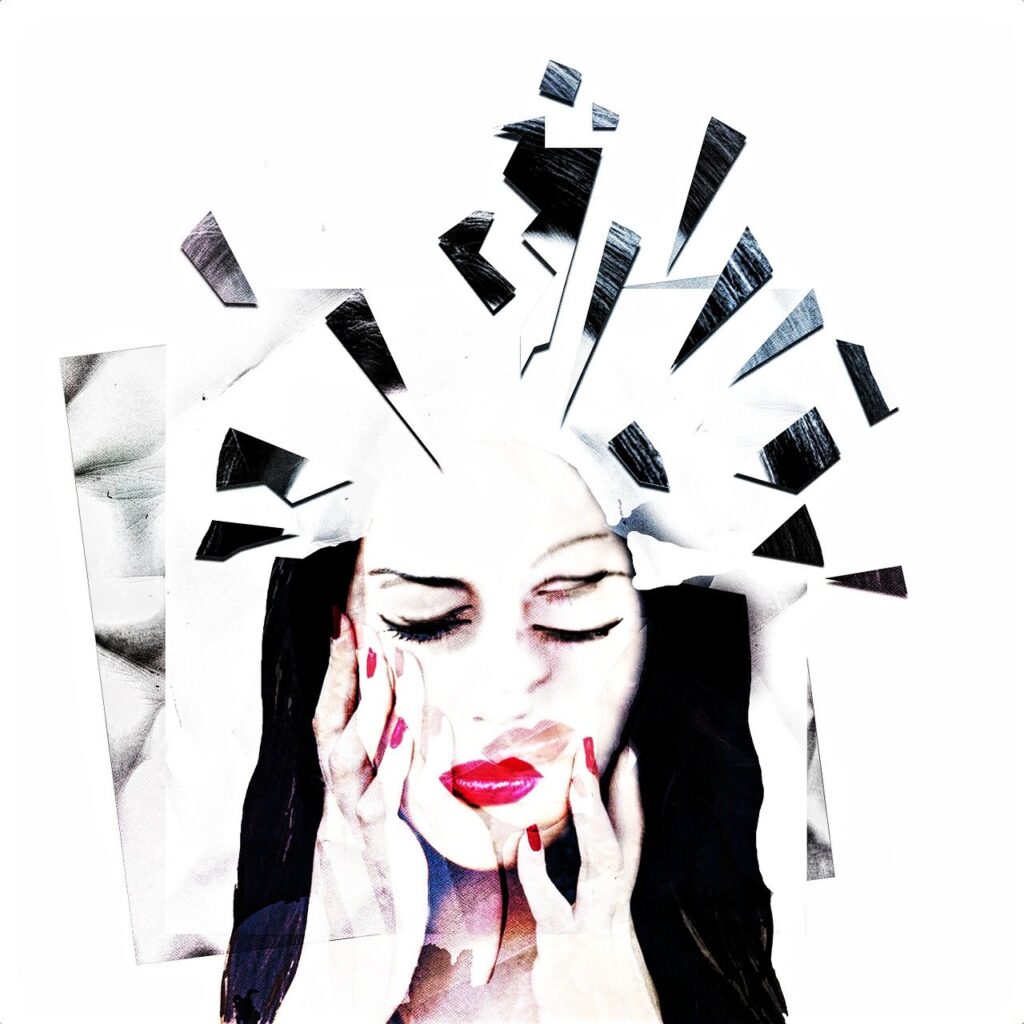
Symptoms by Disorder Type
Anxiety Disorders
Symptoms of anxiety disorders include restlessness, rapid heartbeat, and avoidance of feared situations.
These disorders can disrupt daily life and impact overall well-being. Here are some common symptoms associated with anxiety disorders:
Restlessness: People with anxiety disorders often experience a persistent feeling of being on edge or unable to relax. This restlessness can manifest as a constant sense of unease, difficulty sitting still, or an inability to calm down, even in seemingly calm situations.
Rapid Heartbeat: Anxiety can trigger physical symptoms such as a rapid or pounding heartbeat. This sensation, often described as palpitations, is a common response to anxiety and can make individuals feel as though their hearts are racing uncontrollably. It’s a physical manifestation of the body’s “fight or flight” response to perceived threats.
Avoidance of Feared Situations: One of the hallmark symptoms of anxiety disorders is the avoidance of situations or places that provoke fear or anxiety. For example, someone with social anxiety may avoid social gatherings, while someone with agoraphobia might stay away from open or unfamiliar spaces. This avoidance is often driven by a fear of having a panic attack or experiencing intense discomfort in these situations.
These symptoms can significantly interfere with daily functioning and quality of life. If you or someone you know is struggling with these symptoms, seeking help from a mental health professional can provide support and effective strategies for managing anxiety.
Mood Disorders & Psychotic Disorders
Mood disorder symptoms include prolonged periods of sadness or overly happy episodes, changes in sleep patterns, and loss of interest in activities once enjoyed. Symptoms of psychotic disorders may involve hearing voices, seeing things that aren’t there, and having strong beliefs that are not based on reality.
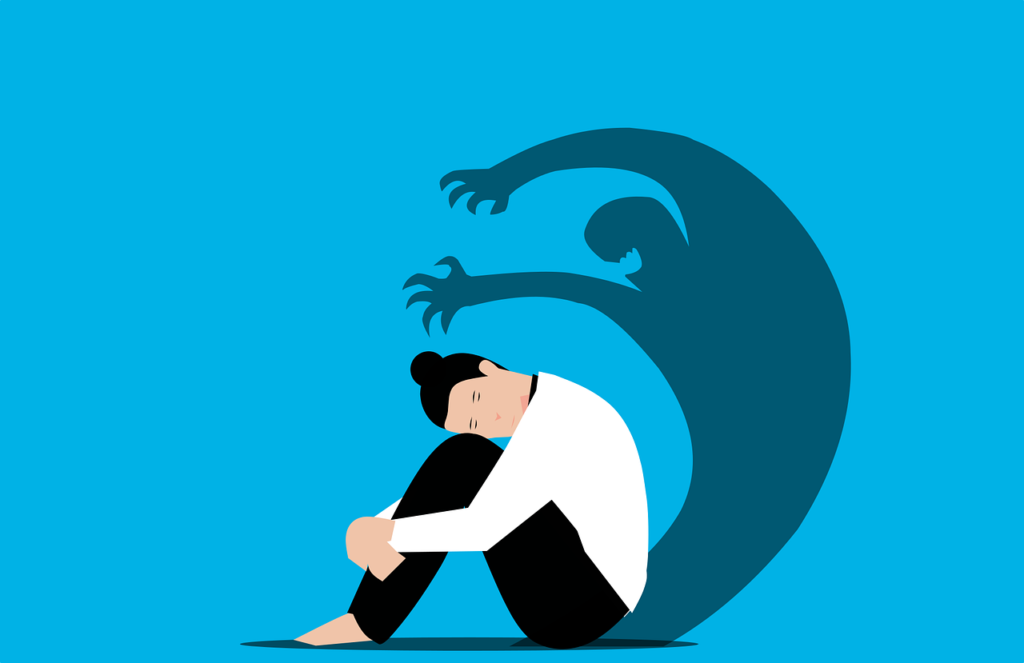
Causes and Risk Factors
Biological Factors
Genetics
Many mental health disorders have a genetic component, meaning they can run in families. To avoid this it’s very important to identify initial symptoms and work on remedies.
Understanding Brain Chemistry and Mental Health
Brain chemistry plays a crucial role in mental health, as it involves the balance of neurotransmitters—chemicals in the brain responsible for transmitting signals between nerve cells. These neurotransmitters help regulate mood, emotions, and overall mental functioning. Here’s a look at how imbalances in these chemicals can be linked to mental health disorders:
- Neurotransmitters: Neurotransmitters like serotonin, dopamine, and norepinephrine are essential for maintaining mental health. They help regulate various functions, including mood, sleep, appetite, and concentration. An imbalance in these chemicals can disrupt these functions and contribute to mental health issues.
- Imbalances and Disorders: When neurotransmitters are out of balance, it can lead to a range of mental health disorders as explained above.
- Treatment and Management: Understanding and addressing neurotransmitter imbalances is a key part of treating mental health disorders. Medications such as antidepressants and mood stabilizers work by altering neurotransmitter levels to restore balance and alleviate symptoms with the help of medical expert. Additionally, therapy and lifestyle changes can help manage and improve overall brain chemistry.
In essence, brain chemistry is integral to mental health. Imbalances in neurotransmitters can contribute to various mental health disorders, and managing these imbalances is crucial for effective treatment and recovery. If you suspect issues with brain chemistry might be affecting your mental health, consulting a healthcare professional can provide guidance and support.
Environmental Factors
Trauma and Abuse & Life Stressors
Experiences such as childhood trauma, physical or emotional abuse, and neglect can increase the risk of developing mental health disorders. Stressful life events, such as losing a loved one, divorce, or financial problems, can trigger or exacerbate mental health issues.
Lifestyle Factors
Diet and Exercise & Substance Abuse
Poor diet and lack of exercise can contribute to the development of mental health disorders. Conversely, healthy eating and regular physical activity are beneficial. The misuse of alcohol or drugs can lead to or worsen mental health disorders.
Common Diagnostic Tools
Psychological Evaluations & Diagnostic Interviews
Psychological evaluations involve assessments by mental health professionals to diagnose mental health conditions. These interviews are structured conversations aimed at understanding the symptoms and history of the individual to make a diagnosis.
Tests and Assessments
Self-Report Questionnaires & Cognitive and Behavioral Tests
Questionnaires filled out by the patient can provide insights into their mental health status.
These tests evaluate thinking, reasoning, and behavioral patterns to aid in diagnosis.
Treatment Options

Medical Treatments
Medications & Hospitalization
Medications, such as antidepressants, antipsychotics, and anti-anxiety drugs, can help manage symptoms of mental health disorders. In critical cases, hospitalization may be necessary to ensure the person’s safety and provide intensive treatment.
Therapies
Psychotherapy & Cognitive Behavioral Therapy (CBT)
Psychotherapy, or talk therapy, involves discussing issues with a mental health professional to uncover underlying problems and find solutions. CBT is a structured form of therapy that focuses on changing negative thought patterns and behaviors.
Lifestyle Adjustments
Exercise & Nutrition
Regular physical activity has been shown to reduce symptoms of depression and anxiety. Eating a balanced diet can improve overall mental health and well-being.
Preventive Measures
Practice Gratitude & Acknowledge What You Feel
Focusing on positive aspects of life and expressing gratitude can enhance mental well-being. Recognizing and accepting emotions, rather than suppressing them, is important for mental health.
Get Enough Sleep & Stay Physically Active
Adequate sleep is crucial for mental health, as sleep deprivation can exacerbate mental health issues. Everyday exercise is beneficial for both physical and mental health.
Eat Nutritious Food & Stay Hydrated
A healthy diet supports brain function and overall mental health. Proper hydration is essential for brain health and can impact mood and cognitive function.
Find Time to Relax
Relaxation techniques, such as meditation and deep breathing, can help manage stress and improve mental health.

Conclusion
Summary of Key Points & Recap of the main topics discussed in the article.
In conclusion, taking care of your mental health is a multifaceted endeavor that involves understanding and addressing various aspects of well-being. By incorporating practices such as acknowledging your feelings, maintaining a balanced diet, staying hydrated, and engaging in regular physical activity, you can significantly enhance your mental resilience and overall quality of life. Personal stories and expert insights highlight the importance of seeking help and adopting preventive measures tailored to individual needs. Prioritizing mental health not only improves personal happiness and productivity but also fosters stronger relationships and a more fulfilling life. Remember, ongoing education and support are crucial, and taking proactive steps can lead to a healthier and more balanced mental state.
Call to Action for Further Education
Encouragement for readers to continue learning about mental health and seek professional help if needed.
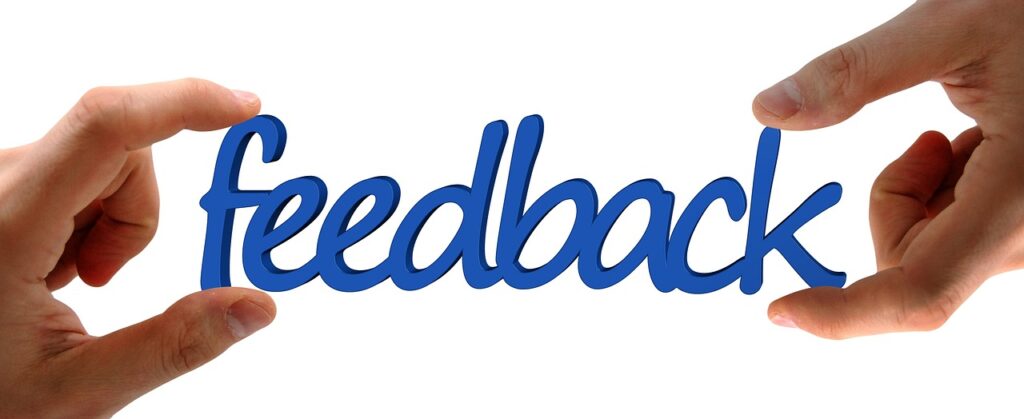
- Your feedback not only encourages us but also helps us improve. Whether it’s a specific subject you’re passionate about or a new idea you think we should explore, we want to hear from you! Please share your thoughts in the comments or send us a message. Together, we can make our blog even better and more engaging. Thank you for being so supportive!
Here are some reputable experts and organizations in the US that focus on mental health:
- American Psychological Association (APA)
- APA Official Website
- Provides resources, research, and expert advice on various mental health issues.
- National Institute of Mental Health (NIMH)
- NIMH Official Website
- Offers information on mental health disorders, treatment options, and ongoing research.
- Mental Health America (MHA)
- MHA Official Website
- Provides resources for mental health support, advocacy, and education.
- Substance Abuse and Mental Health Services Administration (SAMHSA)
- SAMHSA Official Website
- Offers information on substance abuse and mental health services, including treatment locators.
- National Alliance on Mental Illness (NAMI)
- NAMI Official Website
- Provides support, education, and advocacy for individuals affected by mental illness.
- American Psychiatric Association (APA)
- APA Official Website
- Focuses on psychiatry, including research and treatment for mental health conditions.
- National Council for Mental Wellbeing
- National Council Official Website
- Advocates for mental health and substance use services, offering resources and support.
- Psychology Today – Therapist Directory
- Psychology Today Directory
- A comprehensive directory of licensed therapists across the United States.
These organizations and directories provide valuable resources and connect individuals with mental health professionals across the country.
People Also Read
Understanding: Colon Broom Reviews, Common Issues & Benefits of Colon Cleansing with 7 Natural Remedies -click here
7 Powerful Secrets Revealed: Unveiling the Truth About Morbid Obesity with ICD-10 – click here
10 Ultimate Points on Colon Broom Vs. Metamucil – click here
Trace Minerals Drops: 8 Hidden Keys to Radiant Health and Vitality – click here
Herbalife Tea- How in 5 Amazing Steps You Can Supercharge Your Goals? Sip Your Way to Success – click here
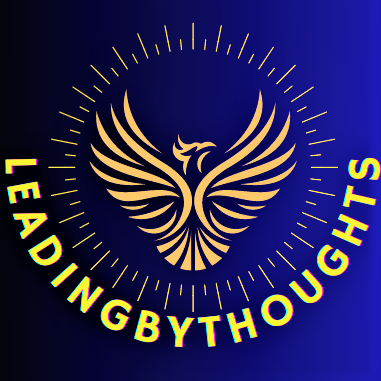

Its like you read my mind You appear to know so much about this like you wrote the book in it or something I think that you can do with a few pics to drive the message home a little bit but instead of that this is excellent blog A fantastic read Ill certainly be back
Somebody essentially help to make significantly articles Id state This is the first time I frequented your web page and up to now I surprised with the research you made to make this actual post incredible Fantastic job
Nice blog here Also your site loads up fast What host are you using Can I get your affiliate link to your host I wish my web site loaded up as quickly as yours lol
I do trust all the ideas youve presented in your post They are really convincing and will definitely work Nonetheless the posts are too short for newbies May just you please lengthen them a bit from next time Thank you for the post
I just like the helpful information you provide in your articles
Your blog is a treasure trove of valuable insights and thought-provoking commentary. Your dedication to your craft is evident in every word you write. Keep up the fantastic work!
Tech to Force I truly appreciate your technique of writing a blog. I added it to my bookmark site list and will
You’re so awesome! I don’t believe I have read a single thing like that before. So great to find someone with some original thoughts on this topic. Really.. thank you for starting this up. This website is something that is needed on the internet, someone with a little originality!
Fantastic site Lots of helpful information here I am sending it to some friends ans additionally sharing in delicious And of course thanks for your effort
Can you be more specific about the content of your article? After reading it, I still have some doubts. Hope you can help me.
Hi,
Thank you for your kind words! I’m glad you found the information helpful. Regarding the supply, we strive to ensure accuracy by sourcing reliable data, but I recommend verifying with additional sources or consulting an expert for the most precise and up-to-date information.
Thanks and Regards,
Leadingbythoughts
I have been browsing online more than three hours today yet I never found any interesting article like yours It is pretty worth enough for me In my view if all website owners and bloggers made good content as you did the internet will be a lot more useful than ever before
Hey there You have done a fantastic job I will certainly digg it and personally recommend to my friends Im confident theyll be benefited from this site
Thanks for sharing. I read many of your blog posts, cool, your blog is very good.
I’m often to blogging and i really appreciate your content. The article has actually peaks my interest. I’m going to bookmark your web site and maintain checking for brand spanking new information.
Magnificent beat I would like to apprentice while you amend your site how can i subscribe for a blog web site The account helped me a acceptable deal I had been a little bit acquainted of this your broadcast offered bright clear idea
My brother suggested I might like this blog He was totally right This post actually made my day You can not imagine simply how much time I had spent for this info Thanks
Technology us Pretty! This has been a really wonderful post. Many thanks for providing these details.